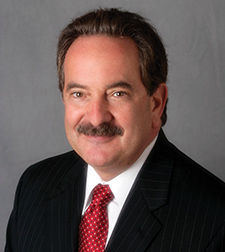
To say that there were dramatic changes in
2016 would be an understatement, but a few major travel "events" will
have a longer-term impact on travel management company financial models, which
ultimately impacts the fees paid by corporate buyers for TMC services.
Three major events that come to mind are the Lufthansa
direct connect model in Germany, a recent airline-global distribution system
lawsuit in New York and a major TMC's adoption of the position that it will
have to surcharge its clients for "nontraditional airlines."
TMC compensation models moved from 100 percent supplier
funded to a hybrid in 2002. How does a corporate travel buyer or procurement
manager know how profitable his or her account is for the TMC or how much room
there is/was to negotiate a better deal? The answer depends on a list of
variables and definitions, including:
Contribution to corporate revenues: This is a nice
way of saying which of the TMC's preferred airlines your company flies and at
what average ticket price—for example: if your preferred airline is Airline A
and that's not an airline that pays overrides to the TMC. You will never be
able to know those true numbers.
Hotel commission contribution: If the TMC is not
sharing the hotel commissions on your account, then the more non-negotiated
hotels you book, the more revenue goes to the TMC. That's certainly easy to
model, but if only 50 percent of your hotels are booked via the TMC, you are
impacting its GDS revenue stream and its hotel commissions.
Dedicated vs. designated: Our industry-recognized
definition is that "dedicated" agents or account managers are
exclusive. "Designated" means shared but primarily assigned to your
account. We now see TMCs using "dedicated" to mean "mostly
exclusive." Look that one up on Wikipedia.
Agent-assisted booking fee: The fee you pay for an "online
unassisted booking" should be significantly lower than the offline (by
phone) fee. Once you make a booking online unassisted (touchless) but then have
to call the TMC, they will invoke the agent-assisted fee based on their
subjective (or contractual) definition. That could range from calling an agent
to ask if you are in an aisle seat to adding a hotel. It should apply when a
new transaction/invoice occurs, not a phone call that can't be audited.
Overall contract language: Be aware of language that
includes "exclusive," "de-implementation costs," "low
fare guarantee," "audit," "annual increase" (one of my
favorites was a COLA increase annually that included online touchless), "automatically
renews," "affiliate" and my favorite, the definition of a "transaction."
You would be amazed at how many variations exist.
This is the short story. At the end of the day,
the partnership between the corporation and the TMC should be fair and
equitable, but that can occur only when there is financial transparency and a
common definition of terms.